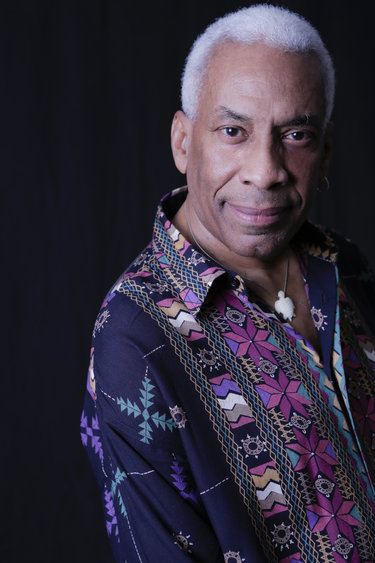Old songs come from people ‘who had something powerful to say’ — mirroring today
— Photo from Reggie Harris
Reggie Harris, one of the performers at this year’s Old Songs Festival, said he likes the event because, “There’s a real opportunity to interact with people and for them to share with you how your music is connecting with them, and what it has brought up for them. And I think in this time, particularly, we need a lot more of that.”
ALTAMONT — What once was old will remain proudly old (and even get a little older) at this year’s annual Old Songs folk festival, which is returning to the Altamont fairgrounds on Friday, June 24, and continuing through that weekend.
It’s the first time the festival will be held in person since the COVID-19 pandemic forced it to go virtual for the past two years, surely a welcome development for those who go for the music but stay for the community.
The Old Songs festival has been put on for decades by Old Songs Inc., a not-for-profit that aims to retain the knowledge and appreciation of traditional folk art, specifically dance and music, as a means of staying connected to the past. The festival is the largest event held by Old Songs and is a celebration of the art it champions, as produced and reproduced by dozens of performing artists who span the globe.
The festival rivals the Altamont Fair in terms of popular draw, and festival-goers have the option to camp out on the grounds, allowing those from further out to attend both morning and night events, and bond with their fellow folkists. Last year’s virtual festival had about 1,000 attendees, Old Songs Executive Director Joy Bennett told The Enterprise this week.
She doesn’t know how many people will attend this year, and there’s no set amount of tickets, but — with the help of some 400 volunteers — it will be as robust as ever, with over 40 acts expected to perform over the three days. There will also be dancing, workshops, food and crafts vendors, a jester, instrument exchanges, and so on.
The musical acts are as varied as folk itself — from 16th-generation Indian-American classical musician Ustad Shafaat Khan, to Boston-based Irish group Copley Street, to the americana band Jamcrackers — and approximated by what Bennett calls “the tradition.”
“Music that is traditional can be passed down through generations and families and communities,” Bennett explained, allowing for the fact that it’s a “moving target” that means different things to different people at different times.
And as sonic ships of Theseus (or memes — whichever your bag) their performance is essential in keeping the core idea moving, even as originators are forgotten, content is changed, and context evolves.
For Philadelphia-born artist Reggie Harris, a scheduled act who’s also a lecturer and storyteller with expertise on the Underground Railroad and the mid-century Civil Rights movement, those old portals allow for new understandings and relationships. The past and the future rest against each other, after all, with the present as their vertex, and self as the foundation.
“As an artist, you realize you don’t have to reinvent the wheel,” said Harris, who’s 69 and has been playing music since he was 20. “Those songs came out of an experience of people who really had something powerful to say, in their time, that mirrors what we’re experiencing.”
He brought up the songs “Sheep, Sheep, Don’tcha Know the Road,” a spare song that reveals the majority of its lyrics in the first verse, and boils them down through refrain, and “Oh Freedom,” an after-the-fact song about slavery, as examples of ones that are “so simple and so basic and so connected to the human experience, that performing them is an affirmation of not only the past but of what I’m going through.”
But, he also pointed out, the simplicity and style of those songs is not a prescription, and that rap, rock, and any other form of music can find a place within his own definition of folk, which centers around its mimetic quality.
“We’re in a world where marketing always wants to put a label on things to pinpoint who they’re selling to … The great thing about Old Songs is they’ve, over time, made some room for introducing those things without getting outside the bounds of their basic format,” Harris said.
In another praise for the festival, Harris said that he likes its intimate feel, relative to other festivals and venues where he’s performed, because he can more directly feel the connection to his listeners as they absorb his interpretations of those songs and form their own.
“There’s a real opportunity to interact with people and for them to share with you how your music is connecting with them, and what it has brought up for them,” he said. “And I think in this time, particularly, we need a lot more of that.”
As for his favorite reactions to his performances, Harris joked that, early on, “it was people coming up and saying, ‘Oh, you’re so great.’ These days, it’s when people come up and say things like, ‘I came today and I was thinking about so many things in my life that aren’t going well. The world is such a mess, I’ve had a really tough year, and today, listening to you, your music gave me hope.
“It happens more often than not,” he said, “and I never take it for granted.”
***
Tickets and more information, including a full schedule of events, can be found at festival.oldsongs.org. Those interested can also email info@oldsongs.org or call (518) 765-2815.
